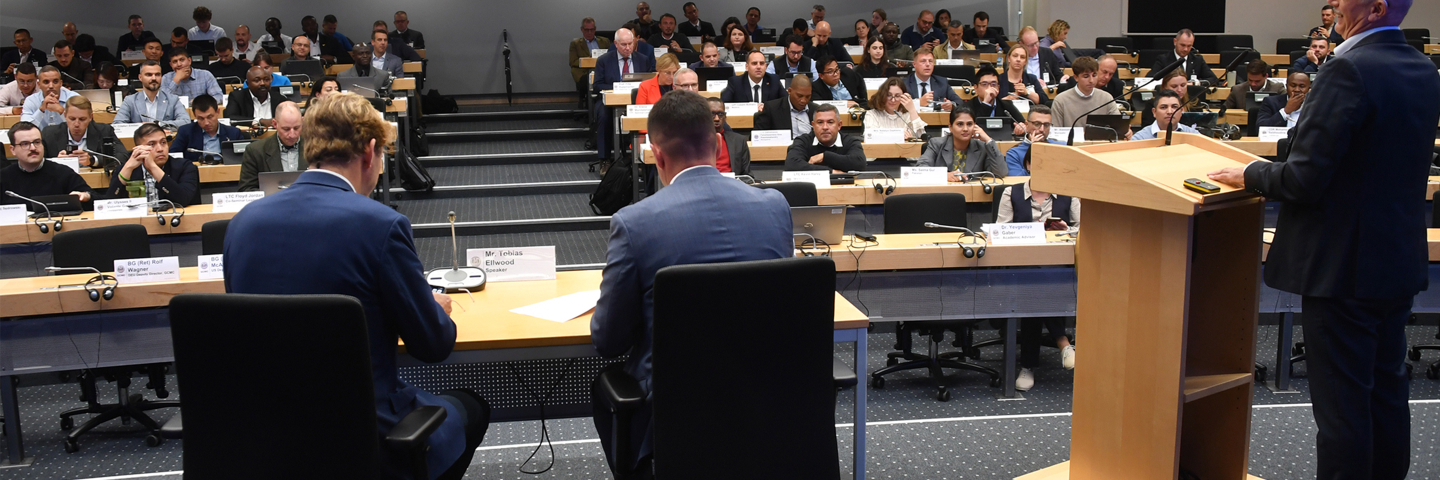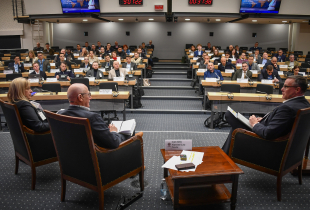
Economics at the Center of Security Discussions During Program on Applied Security Studies
During afternoon session of the Program on Applied Security Studies in Garmisch-Partenkirchen on Sept. 23, 2025, participants put economics front and center as they examined how trade, supply chains, and resilience shape today’s strategic environment.
First, a plenary of security professionals representing countries around the world heard from Marc Ozawa, Ph.D., Marshall Center associate profession of strategic security studies, on the topic of “Economic Resilience and Economic Coercion in a Globalized World.
“Commerce cannot be separated from geopolitics—especially when adversaries do not make that separation,” he said, explaining how economic instruments like trade, finance, and energy are increasingly employed as tools of statecraft.
Building on Ozawa’s emphasis that economics cannot be separated from politics and security in an era of strategic competition, the afternoon session examined how China and Russia are reshaping global trade and security structures.
“That is all about disrupting supply chains, of hogging the supply chains and having monopolies over the ingredients that you need to make stuff,” said U.K. Parliamentarian Tobias Ellwood, “And that's the dilemma that we actually face.”
The solution to this dilemma, as presented by Koray Köse, GLOBSEC senior fellow and global supply chain strategist, is resilience:
“Resilience means not just waiting to see what happens, but taking a side, analyzing the situation, and making decisions for yourself,” he said. “Because only then can you truly prevent disruption.”
His emphasis on innovation, proactive leadership, and resilience to prevent crises was a clear takeaway for participants, who will leave PASS more prepared to advise and decide in their own nations and organizations, while summarizing his presentation on LinkedIn:
“Before me: an auditorium of future generals. My message was clear. Supply chains are the arteries of national power. When they break, nations bleed.
“We cannot fight tomorrow’s wars with yesterday’s supply chains and technology.”
